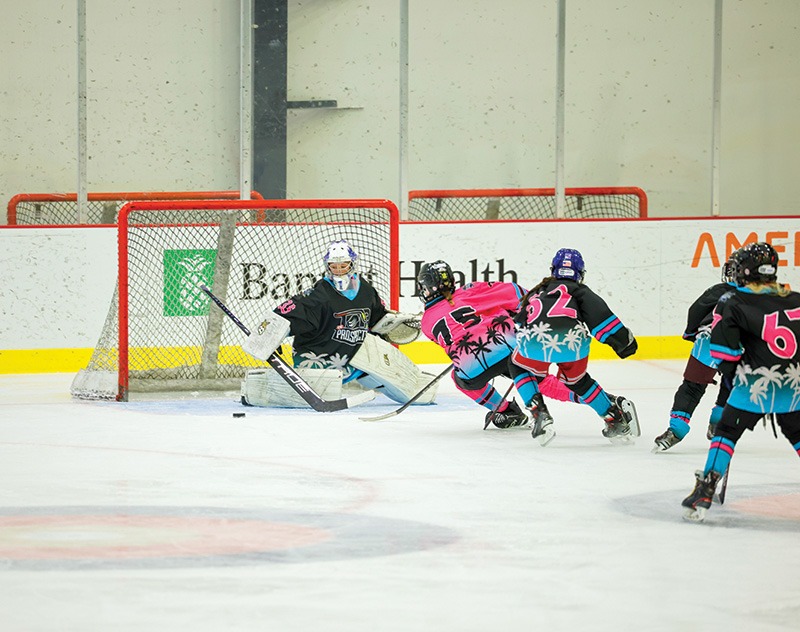
In softball, success is measured in more than wins and losses. Behind every tournament and championship are leaders who balance vision with logistics, and strategy with adaptability. Increasingly, some of the sport’s most impactful leaders, from planners, coaches, and officials, are women who are setting the standard for how great events come together. We spoke with three industry veterans who shared the leadership lessons they’ve learned along the way, plus practical insights for creating tournaments that inspire athletes, engage communities, and raise the bar for the game.
Meet the Leaders
Sarah Hall
Head coach, North Greenville University Softball
A South Carolina native, Sarah Hall begins her 16th season leading North Greenville softball in 2025. A former standout at Samford University, Hall quickly transitioned into coaching—first at a private school in Alabama, before returning home and serving as an assistant at her alma mater, Mauldin High School. She took the helm at NGU in 2010, immediately guiding the program to its first-ever National Christian College Athletic Association national championship.
Patty Harsch
Senior consultant, Triple Crown Sports
A lifelong athlete who has played softball since the age of eight, Patty Harsch brings more than 30 years in sports event management and more than 15 years in human resources to her role as senior consultant at Triple Crown Sports, one of the nation’s premier youth and collegiate event producers. The company hosts roughly 300 baseball, fastpitch softball, basketball, and volleyball events annually. Harsch has been integral in shaping the company’s people-first approach, ensuring that every tournament positively impacts athletes, families,
and communities across the country.
Carol Bruggeman
CEO, National Fastpitch Coaches Association

A respected leader and Hall of Famer, Carol Bruggeman serves as CEO of the National Fastpitch Coaches Association (NFCA), where she has guided unprecedented growth in membership, programming, and events. Inducted into the NFCA Hall of Fame in 2023, Bruggeman has also been recognized as one of Louisville Business First’s “Most Admired CEOs” and honored by her alma mater, the University of Iowa, for her contributions to sport and recreation. A former coach turned renowned clinician, author, and television analyst, she has shared her expertise around the world, from national conventions to international stages.
Leadership starts with people
Leadership in softball isn’t just about calls on the field or managing events—it’s about understanding people, nurturing growth, and building teams that thrive. And as all three leaders note, leadership is at its strongest when it centers on people, relationships, and growth.
For Hall, leadership is personal. She believes every player brings something unique to the team, whether it’s a starting role or quiet influence from the bench. “Everyone is leading every day, whether you know it or not,” she says. She emphasizes guiding athletes through setbacks as much as victories. “Life has setbacks. So, do you respond with fire, or do you let it crumble you that day? We talk a lot about how to turn the negative into a learning experience. That’s how we’re constantly learning and growing.”
Bruggeman approaches leadership with a dual focus: people and responsibility.
“If you have the right people around you helping lead the charge, everything falls into place a little better,” she notes. Having earned her role in a male-dominated space, she also sees leadership as a platform for future women. “Women often have had to work harder for leadership roles, and once you’re in them, you understand you’re a role model,” Bruggeman says. “I take that very seriously, not just leading my organization today, but paving the way for future women leaders.”
Meanwhile, Harsch highlights patience, listening, and relationship-building as key leadership traits. “The number one thing I’ve learned is not to try to rush things. Build relationships before you make an ask,” she says. By surrounding herself with people who share her passion and taking time to truly listen, she ensures her events succeed while cultivating trust and collaboration. “Listen before you leap, whether you’re selling someone on entering your event or presenting in front of a board.”
Lessons in resilience and growth
Softball, like leadership, is as much about setbacks as it is about success. The way leaders respond to challenges not only defines their teams and events, but also sets the tone for the people who look to them for guidance.
Resilience is at the core of Hall’s coaching philosophy. She reminds her players that failure is part of the game and part of life. “Our sport is a sport of failure, and we won’t win every game, but how do we grow and learn from our failures? It’s not just losing; it’s about what we can do better next time so it doesn’t happen again.”
Harsch’s lessons in resilience often come from navigating male-dominated spaces in sports. She emphasizes the importance of confidence, preparation, and persistence. “First of all, it’s not being afraid to use your voice and trust that what you’ve learned is valuable, even in a room where you might be outnumbered.”
Bruggeman ties growth directly to curiosity and integrity. For her, leadership is about refusing to plateau. “Never stop learning and growing. You can’t read enough or ask enough questions. When you meet someone new, make sure you’re listening more than you’re talking.” She also believes resilience means keeping your word and striving for excellence. “Your word has to really mean something. If you say you’re going to do it, do it well,” Bruggeman says. “If you say you’re going to be somewhere, be there, and be on time. The world is full of average, but if you want to be a leader, you can’t be average.”

The art of event execution
Success isn’t just about ideas or inspiration; it’s about execution. Whether it’s a grassroots tournament or a national convention, the details, relationships, and planning behind the scenes are what transform an event from good to great.
Harsch has seen too many events stumble because organizers focused on flash over foundation. “Building that relationship is often underestimated,” she explains. “People think it’s about a cool flyer or social media campaign, but if you don’t have buy-in from the right people, you can rent the facilities, hire umpires, and still only end up with eight teams.” For her, the real work begins long before registration opens. “You have to find the centers of influence in the sport or market—those people who are eating, drinking, sleeping, breathing your sport. Get to know them, build trust, and maybe even involve them in shaping the event. Only then can you make the ask.”
Bruggeman approaches events with a meticulous eye for detail and a long-term perspective. For her, execution begins years in advance. “We sign contracts three to four years out, and the planning really starts then. About 18 months prior to our convention, we do another site visit, and from that point forward, it’s monthly planning meetings, weekly check-ins, and constant communication with both the venue and our internal team.”
The scale may vary—an outdoor tournament or a national convention—but the principle remains the same: every detail matters. “Even though you have a schedule for the day, within that schedule, each little event has a lot of detail within it. Who is going to run the A/V? Who is communicating with the speakers? What’s the attire for the group? What’s the audience for the speaker? Every little line item has to be thought through.”
This level of preparation isn’t optional, it’s what makes or breaks an event. “Making sure those details are done well is critical, because for coaches, this is their livelihood. Their office is the softball field. So the details—from umpires to field maintenance—have to be right.”

Lessons to lead by
At the heart of each leader’s story are lessons they carry with them—and now pass on to others. These philosophies have grown through lived experiences, shaping how they lead, work, and inspire.
For Hall, leadership comes down to presence and care—she cites the volunteer high school coach who believed in her as her role model. “Nothing came easy to me. I had to work hard to practice and always had to do a little extra,” she recalls. “He always spent that extra time with me.” That commitment left an impression she now pays forward. “I just want to spend time with my team. I want them to know they are loved for more than softball. That started with him. We obviously practiced a lot, but he cared about me as a person.”
Harsch’s guiding lesson is patience paired with courage. “I know it sounds a little cliché, but never give up,” she said. For her, confidence is key, but so is preparation. “Reach deep within you, know that you have value inside of you that if you’re brave enough to share, nine times out of 10 it’s going to be a great idea. But you have to be ready to defend why you think that way in a positive, non-threatening way. Show up prepared, show up educated, and be open to questions. Don’t shut down—just give the answer because you know it.”
Bruggeman’s lessons lean on action and integrity. Her first piece of advice? Don’t be afraid to say yes. “If someone asks you to work a camp at a school, or speak to a class, or join a project, say yes. Even if you’re nervous, say yes. Because it means you care. And every yes grows your network and gets people connecting the dots about who you are and what you’re about.”












